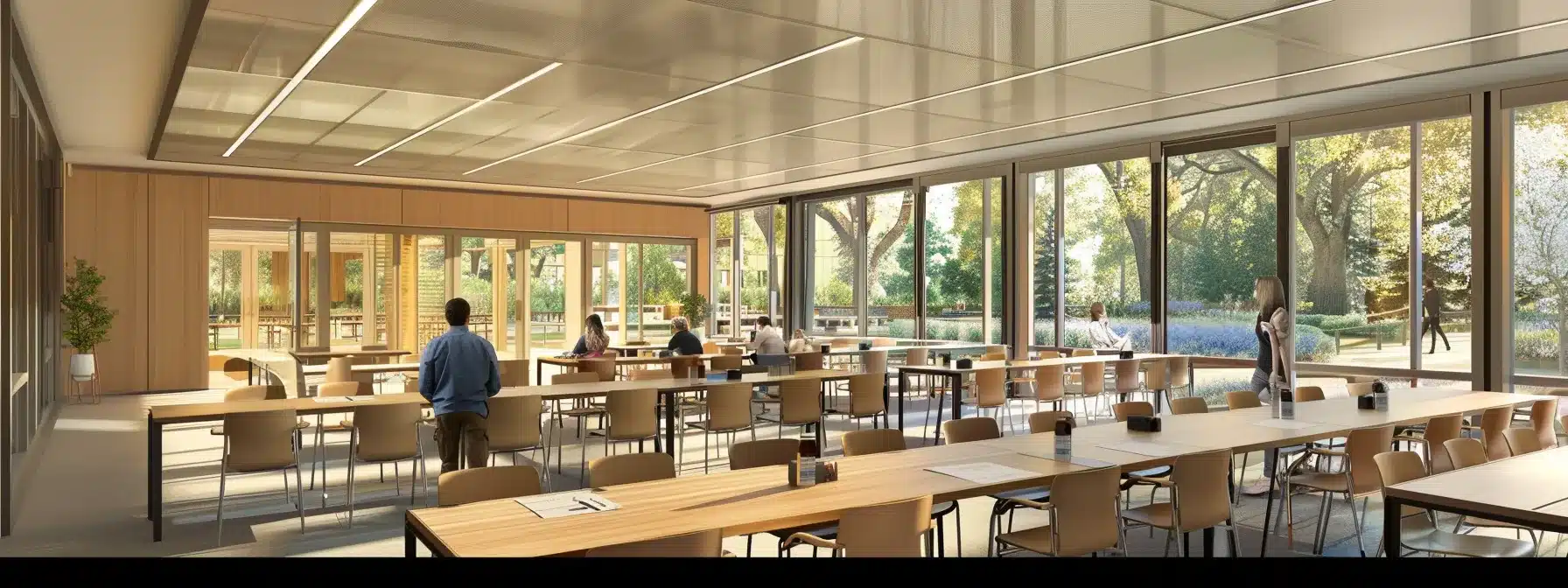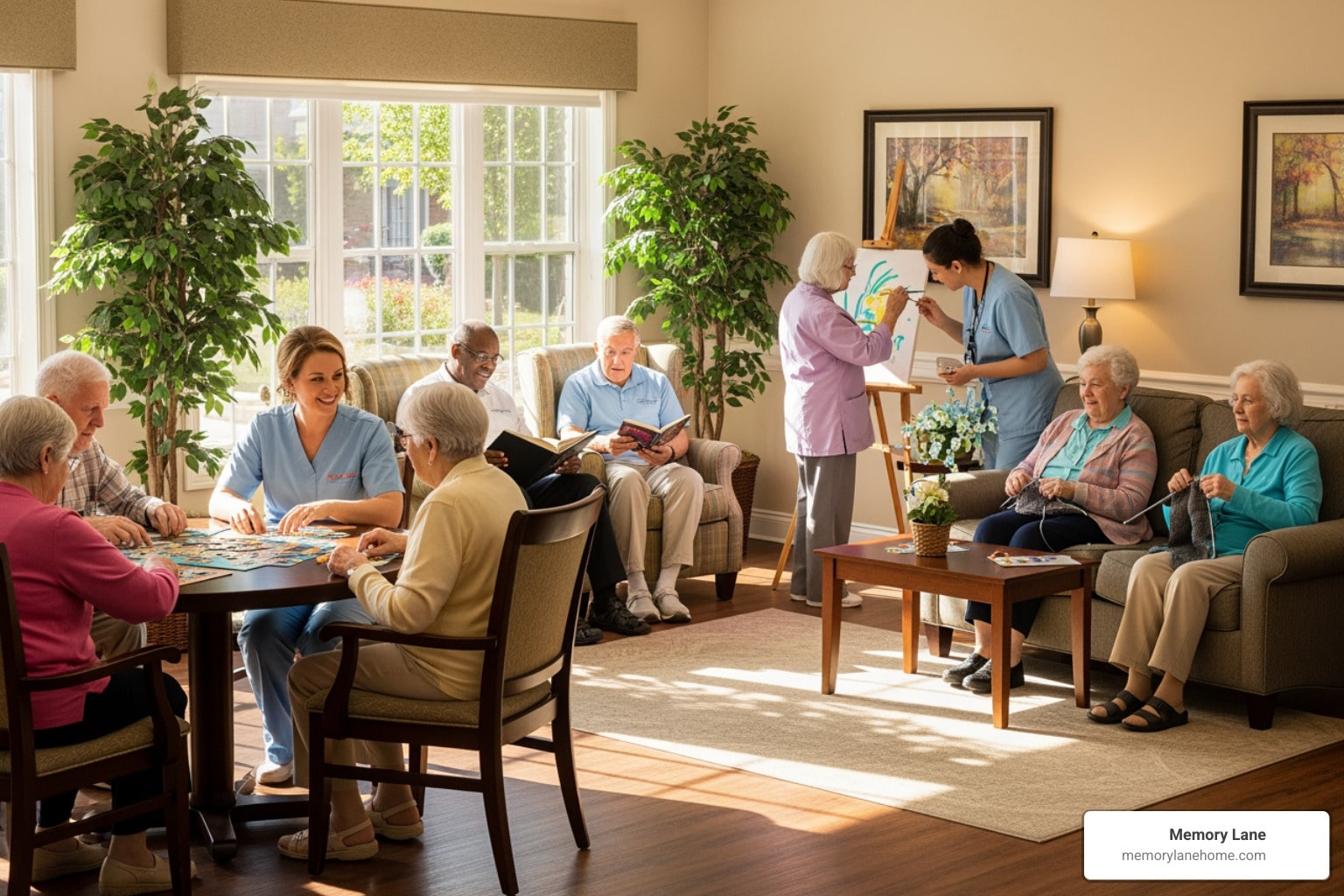Secure the best affordable memory care community wallingford pa. Learn about costs, funding, and how to choose quality dementia support.

Affordable Dementia Care Options You Can Explore in Michigan
Affordable Dementia Care Options in Michigan: A Comprehensive GuideTable Of Contents:
- Affordable Dementia Care Options Available in Michigan
- Key Takeaways
- Understanding Affordable Dementia Care Options in Michigan
- Financial Assistance for Dementia Care in Michigan
- Comparing Dementia Care Costs Across Michigan
- Community Resources Supporting Affordable Dementia Care
- Legal and Regulatory Framework for Dementia Care in Michigan
- Tips for Choosing the Right Affordable Dementia Care
- Frequently Asked Questions
- Conclusion
Affordable Dementia Care Options Available in Michigan
Are you searching for affordable dementia care options in Michigan? This post covers affordable dementia care options in Michigan, financial assistance, and local community resources. Readers will learn ways to reduce care expenses while ensuring quality support for cognitive challenges. The content highlights practical solutions to manage high care costs and find community support in familiar surroundings. It offers guidance to help families make informed choices for their loved ones.
Key Takeaways
- Memory Lane provides specialized care in a home-like setting for those with dementia
- The facility emphasizes structured meal plans and routine health evaluations
- Regulatory standards guarantee safe and consistent dementia care
- Medicaid support helps ease the financial burden for families
- Facility tours empower families to assess practical care options
Understanding Affordable Dementia Care Options in Michigan

This section offers an overview of dementia care services available, detailing care facilities in Michigan that promote dignity. It explains affordable care benefits while incorporating insights from the Michigan Department of Health and Human Services, relevant regulation, food bank support, and considerations such as the social security number to ease application processes.
Overview of Dementia Care Services Available
Memory Lane Assisted Living offers a range of dementia care services in Michigan, blending primary care with specialized alzheimers-care to meet unique needs. A place for mom who experiences injury or daily challenges can rely on consistent meal planning and routine health evaluations to support overall well-being.
The facility integrates focused alzheimers-care with comprehensive primary care, ensuring that each resident receives the right injury management and care solutions. An emphasis on regular meal schedules and personal support creates an environment where every individual feels valued and secure.
Different Types of Dementia Care Facilities in Michigan
The state offers a range of dementia care facilities designed to meet varying needs, with some establishments located in several counties across Michigan. A memory care facility in Grosse Pointe, for example, pairs specialized dementia services with routine assessments to support residents’ nutrition and safety.
Different settings provide targeted programs to simplify employment for the staff and to maintain high standards of care in every associated county:
Benefits of Choosing Affordable Dementia Care
Choosing affordable dementia care presents clear benefits, allowing families to locate quality services using a specific zip code. Facilities like Memory Lane Home offer tailored programs that provide organized transport and care services, ensuring that every resident receives the consent-needed support in a familiar environment.
This care option in Michigan supports practical living requirements by combining health solutions with everyday activities similar to settings found in Wyoming. The care approach offers consistent evaluation and focused attention, making it easier for families to secure accessible services when needed.
The story now moves to a deeper look at the cost side of care. Next, the focus shifts to ways families gain help with expenses.
Financial Assistance for Dementia Care in Michigan

Medicaid options for dementia care in Michigan ease expenses while upholding a philosophy that balances elderly care with effective nursing home support. This section outlines Medicaid eligibility requirements, financial aid application steps, and an overview of support services designed for those managing disease challenges.
Overview of Medicaid Options for Dementia Care
Medicaid options provide a range of affordable solutions for dementia care in Michigan, with organizations offering support that addresses both health and legal aid needs. In southeast michigan, experts monitor diet and behavior to ensure that individuals receive proper care while easing financial pressures for families.
The state program presents clear eligibility guidelines that streamline access to essential services and professional care. Assistance through Medicaid helps families manage expenses while professional teams address specialized care requirements, including diet adjustments and behavior monitoring.
Eligibility Requirements for Medicaid in Michigan
Medicaid eligibility in Michigan requires careful evaluation of an individual’s financial situation, with requirements considering factors such as mortgage status and overall assets. Professional teams at Memory Lane Assisted Living work closely with families to assess risk and clarify how medicare part d and other benefits complement residential care solutions for those living in a supportive village setting.
Applicants must meet specific income and asset thresholds set by the state, ensuring that dementia care remains both beneficial and affordable. The process involves expert guidance that helps families navigate through required documentation, including details on mortgage commitments, potential risk factors, and medically backed support programs, all while maintaining steady communication with both medicare part d and local village-based services.
How to Apply for Financial Aid
Individuals seeking financial aid for dementia care in Michigan can begin the application process by gathering all necessary personal and financial documents. This process assists families in demonstrating their eligibility for programs that complement health care plans, address equity in care access, and integrate employee benefits available in regions such as Iowa.
Professional teams assist applicants by reviewing the documentation and linking their submitted information to relevant state programs. This streamlined evaluation helps families secure comprehensive care support for dementia, ensuring that financial aid aligns with accessible health care services and meets specific equity standards.
Dollars matter where care is given, and funds secure the dignity of life. Next comes a look at how costs vary across Michigan, offering a clear view of the value in each option.
Comparing Dementia Care Costs Across Michigan

This section reviews pricing trends in major cities, highlights affordable care options in rural areas, and compares costs between facilities. It provides practical insights into affordable memory care in Kent, offering details on patient care, wheelchairaccessibility, and emergency support. The analysis serves as a brief overview before a deeper examination of these important factors.
Pricing Trends in Major Cities
The analysis of pricing trends in major cities shows that regional differences affect affordability in a noticeable way. Local residents search for assisted living and memory care homes based on factors like market demand, facility quality, and accessibility, with some comparisons extending to regions like illinois and indiana:
Major cities continue to set competitive rates for dementia care, with each area showing distinct cost structures for assisted living and memory care homes. The pricing strategies allow families to compare and select facilities based on clear information, ultimately improving overall accessibility to quality care services.
Affordable Care Options in Rural Areas
Rural areas in Michigan offer affordable memory-care-services that benefit local communities facing challenges such as poverty while supporting family caregivers. These regions provide cost-effective solutions that combine health insurance benefits and community resources with specialized memory-care-services:
- Local assistance programs
- Affordable housing support
- Community health outreach
- Tailored in-home support plans
Expertise from facilities across Michigan informs practical examples where rural settings offer viable care options comparable to destinations like Missouri. Family caregivers can access programs that support affordable care while addressing needs such as health insurance coverage and direct support from memory-care-services designed to ease financial burdens.
Comparing Costs Between Facilities
Memory Lane Assisted Living provides careful comparisons of facility costs by considering factors such as retirement planning and reverse mortgage options, ensuring each resident’s expenses align with their financial needs. The facility also evaluates the impact of power of attorney protocols and medication management to support a balanced care solution with genuine compassion for every resident.
The analysis highlights clear distinctions between facilities, focusing on practical elements that affect overall affordability. By addressing retirement needs, reverse mortgage options, and medication management, Memory Lane Assisted Living offers actionable insights that assist families in making informed decisions while ensuring the power of attorney procedures are managed with compassion and expertise.
The cost review lays the groundwork for a deeper look at care. Up next, local programs offer support that can ease these burdens.
Community Resources Supporting Affordable Dementia Care

This section outlines nonprofit organizations and support groups, local government resources and programs, and volunteer and community engagement opportunities. It offers practical insights on fee details, asset management, and telephone assistance from trusted partners like the University of Michigan, ensuring care is delivered without discrimination.
Nonprofit Organizations and Support Groups
Memory Lane Assisted Living works with a reputable nonprofit organization network that offers vital nursing and respite care solutions in Michigan and nearby regions. This collaboration addresses dementia-care needs while drawing on support groups that provide expert advice and practical assistance, echoing practices observed in similar communities in Wisconsin:
The facility also connects families with dedicated support groups that offer continuous guidance and a space to share experiences, ensuring that individuals receive reliable nursing and dementia-care services. This coordinated effort eases the stress on primary caregivers by integrating reliable respite care options and emphasizing a community-focused approach.
Local Government Resources and Programs
Local government resources in Michigan offer practical programs to support affordable dementia care. These services include physical therapy sessions and meals on wheels programs designed to reduce stress and improve the memory and overall well-being of residents, including veteran populations.
Officials provide community-based solutions that assist families in managing daily care needs and addressing health challenges while also offering support for stress management. The programs include clear steps for accessing benefits such as:
- Physical therapy sessions for mobility support
- Meals on wheels services to sustain well-being
- Memory care workshops for caregiver support
- Specialized programs for veteran care
Volunteer and Community Engagement Opportunities
The facility promotes volunteer work and community engagement by organizing programs that support activities of daily living and ensure proper hygiene practices for residents. Volunteers and caregivers assist with routine activities and offer hands-on guidance, thereby easing the burden on family members while helping residents maintain their independence:
- Promoting effective hygiene routines
- Assisting with activities of daily living
- Supporting caregivers with practical solution insights
- Offering income-based resource support
- Connecting families with advice inspired by successful programs in Ottawa
Community engagement opportunities offer real-world support to families seeking affordable dementia care solutions in Michigan. By involving dedicated volunteers, the facility ensures that caregivers receive practical assistance and residents enjoy a safe environment, while local income-based initiatives contribute to the overall well-being of those in need.
Local groups work hard to keep dementia care affordable in their neighborhoods. Meanwhile, Michigan sets clear rules that shape every step of this care.
Legal and Regulatory Framework for Dementia Care in Michigan

This section outlines licensing requirements, residents’ rights in dementia care facilities, and reporting procedures for violations and abuse. It also covers foster care, estate planning, and physician oversight to ensure quality care and informed decisions.
Understanding Licensing Requirements
The facility ensures full compliance with state licensing requirements by maintaining rigorous standards that support affordable dementia care and prioritize resident safety. Regulatory guidelines direct every operational aspect, offering families clear benchmarks to evaluate quality and accountability in dementia care facilities.
Experts at Memory Lane Assisted Living guide families through the licensing landscape, providing practical insights into policy details and procedural standards. Clear communication and expert support equip families with the knowledge needed to verify that facilities adhere to the necessary regulations and deliver dependable care.
Residents’ Rights in Dementia Care Facilities
Residents of dementia care facilities are ensured comprehensive legal protections that safeguard their decisions and personal dignity. Memory Lane Assisted Living adheres to strict regulations designed to secure these rights, ensuring that each individual receives clear communication regarding treatment and care adjustments.
The facility guarantees that every resident enjoys a respectful environment where their opinions influence care processes. Professionals at Memory Lane Assisted Living use their expertise to implement policies that directly address the needs of those facing cognitive challenges, thereby promoting accountability and transparency in affordable dementia care in Michigan.
Reporting Violations and Abuse
Memory Lane Assisted Living ensures that any signs of mistreatment in affordable dementia care settings are reported promptly to the proper authorities. The team advises families to contact local agencies if they notice behaviors that do not meet state regulations, providing clear steps to protect resident rights and enhance transparency in care management.
The facility supports a system where professionals and family members work together to document any questionable incidents. This approach helps maintain high standards in affordable dementia care solutions in Michigan while ensuring that all violations and instances of mistreatment are addressed as quickly as possible.
The legal rules shape how care is delivered in Michigan. Now clear and practical advice shines a light on picking truly affordable dementia care.
Tips for Choosing the Right Affordable Dementia Care

Consider individual needs and preferences when choosing dementia care, noting what facilities offer during tours. The guidance covers what key features to observe and which questions help clarify service delivery. These insights support a practical comparison of affordable dementia care in Michigan, ensuring families receive clear benchmarks for evaluating care options.
Assessing Individual Needs and Preferences
Assessing individual needs and preferences starts with a clear evaluation of daily routines, health requirements, and communication styles. Professionals at Memory Lane Assisted Living guide families with practical evaluations that simplify the decision-making process for dementia care services in Michigan.
Families benefit from comparing facility features and service delivery by reviewing essential information:
Visiting Facilities: What to Look For
When visiting facilities, evaluators should observe the overall environment, including room arrangements, accessibility features, and availability of scheduled care routines that support affordable dementia care. Decision-makers can assess key areas such as cleanliness, staff engagement, and comfort provisions:
When assessing affordable dementia care options in Michigan, evaluators note that facilities display consistent safety measures and organized daily routines that meet resident needs. Professionals advise that a thorough visit helps families make well-informed decisions while ensuring the chosen care environment offers practical support and clear resident benefits.
Questions to Ask During Facility Tours
During facility tours, families should ask concrete questions about daily care routines and staff training to ensure that the dementia care program aligns with their needs. Inquiring about meal planning, personal support, and emergency backup plans allows observers to assess if the facility can provide consistent and compassionate care.
Tour participants are encouraged to request detailed explanations on scheduling, medication management, and communication protocols with residents. Engaging with facility staff on these topics helps families understand the practical aspects of care and guides them in choosing a property that offers affordable dementia support in Michigan.
Frequently Asked Questions
What affordable dementia care options exist in Michigan?
Memory Lane Assisted Living in Ypsilanti offers affordable dementia care in a small residential setting that provides personalized attention and specialized memory care services to support individuals with Alzheimer’s and other forms of dementia.
Where can financial help for dementia care be found in Michigan?
Michigan offers financial support for dementia care through state programs, local aging services, and nonprofit organizations. In the Ann Arbor region, Memory Lane Assisted Living provides guidance to families seeking help for dementia care expenses.
How do dementia care costs differ across Michigan facilities?
Dementia care fees vary across Michigan facilities. Small residential settings like those at Memory Lane Assisted Living often offer care with personalized attention at different price points compared to larger establishments.
Which community groups support affordable dementia care services?
Local community groups in Ypsilanti and Ann Arbor, including nonprofit and caregiver support networks, offer affordable services, guidance, and trusted assistance for memory care and dementia support.
What laws affect dementia care affordability in Michigan?
Michigan law mandates Medicaid eligibility guidelines and long-term care insurance rules that shape dementia care affordability, influencing residential care budgets and personal contributions required for quality assisted living services.
Conclusion
Affordable dementia care in Michigan addresses essential needs by providing specialized services in supportive environments. Memory Lane Assisted Living demonstrates that tailored programs reinforce dignity and practical support for individuals facing cognitive challenges. Families gain clear insights into cost comparisons, regulatory frameworks, and community initiatives that simplify decision-making. These focused service models inspire confidence in the care choices available, ensuring that every resident receives the compassionate support they deserve.


